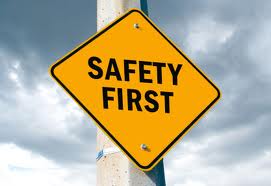 College students have enough to think about as they set off on the road to higher education. However, in addition to classes and socializing, students have to think about all aspects of their safety. This includes physical safety as well as other forms of security. College students can take a few proactive steps to help reduce the chances that they will fall victim to a crime by following these campus safety tips.
College students have enough to think about as they set off on the road to higher education. However, in addition to classes and socializing, students have to think about all aspects of their safety. This includes physical safety as well as other forms of security. College students can take a few proactive steps to help reduce the chances that they will fall victim to a crime by following these campus safety tips.
Learn About Campus Security
One of the first things college students need to do is find out about what types of services campus security offers. For instance, some security services may include escort services during the evening while some campuses even provide safe ride services. Of course, knowing when campus security patrols the area can also help when making plans to leave and enter various areas of campus that appear less safe than others. This can also help with getting access to buildings after hours for those who work with student functions.
Many campuses will also include other services such as sending student alerts to crimes in the area. Many may send alerts to email addresses, but some allow students to receive text messages for more immediate alerts. It is also a good idea to find out if campus security has a social media presence on sites such as Twitter or Facebook as well as a mobile app that can keep students updated on campus issues.
Learn the Campus
Learning about campus security also means learning about the campus itself. Most larger campuses take many steps to ensure the safety of students. For instance, many include lighted pathways for students. It is also a good idea to learn layouts within buildings to check for emergency exits in case of fire and other emergencies that can occur at unexpected moments.
Protect the Digital Footprint
These days, it is also very important for students to protect themselves online. Many people use online platforms such as social media to harass and stalk others because they believe they are anonymous. Unfortunately, many times the authorities will not act on such instances until they have reached advanced stages, so students need to be careful about how much and what kind of information they share about themselves online.
Students also need to protect themselves in other ways when it comes to using their online technology. Information can be stolen from laptops, smartphones and other mobile devices, so students should lock them and secure them in other ways so that unauthorized persons cannot steal their personal information. This also means protecting passwords by changing them every once in a while and making sure they are not obvious passwords such as the names of pets, family members or friends.
Be Proactive
Of course, students can also take a few proactive steps to help prevent them from falling victim to a crime. Students should plan accordingly when they know they will be on campus late so that they can make arrangements and have someone walk with them back to dorms or apartments. They should also make sure cell phones or smartphones are charged and have emergency numbers programmed into them in case of an emergency.
While it is important to focus on the educational aspects of the college experience, it is also very important to make sure college students keep themselves safe during their tenure. Students need to know how to navigate their way around campus. They also need to know what types of help they can expect from campus security resources. These days, students also need to know how to protect themselves online to prevent a number of cyber crimes including harassment and identity theft.
__________________________
Author Bio
Sarah Daren is a writer who creates informative articles relating to the field of health. In this article, she offers safety tips to new university students and aims to encourage further study with an Emergency Management Masters Degree.
